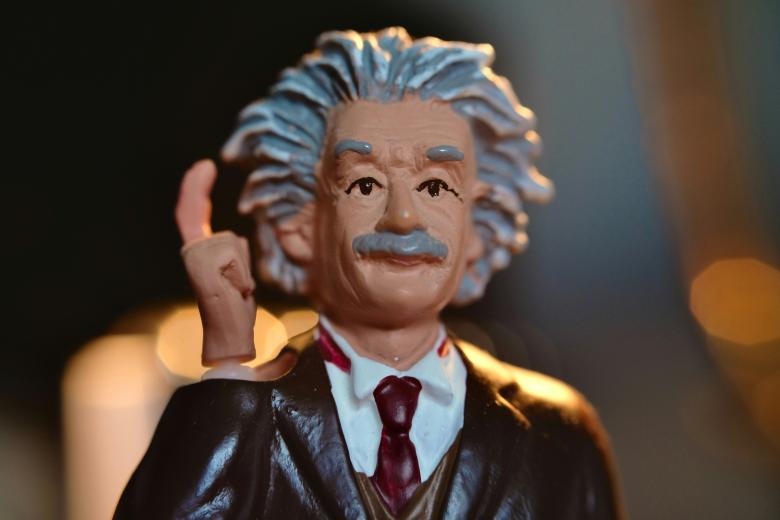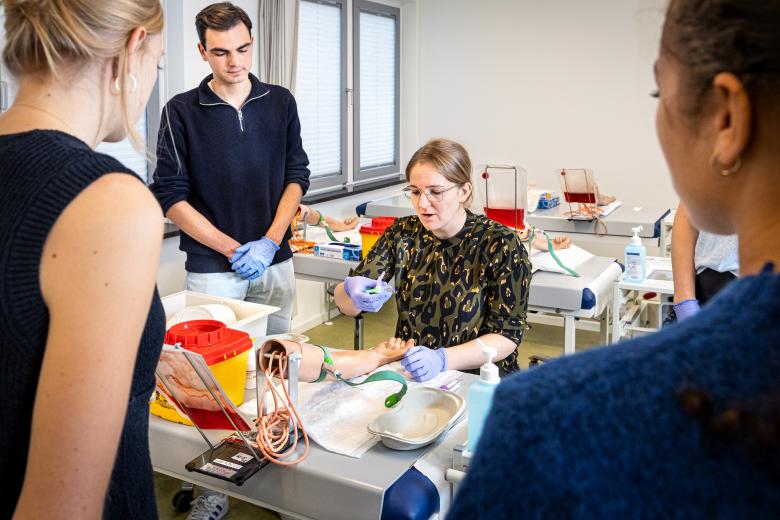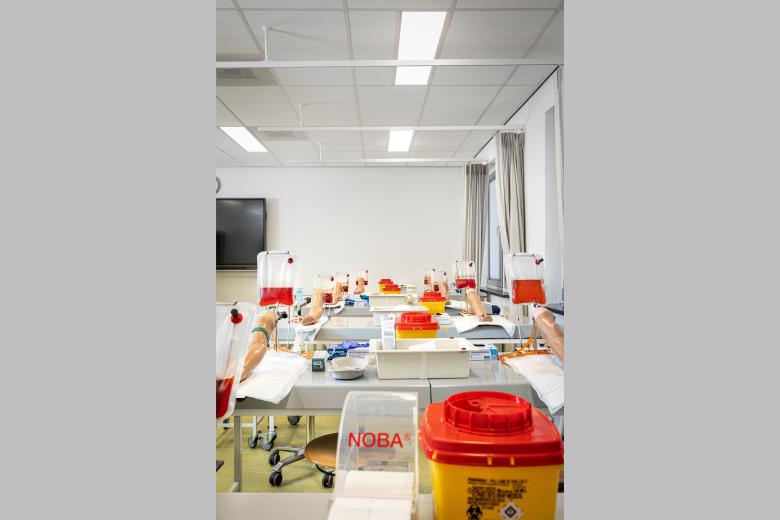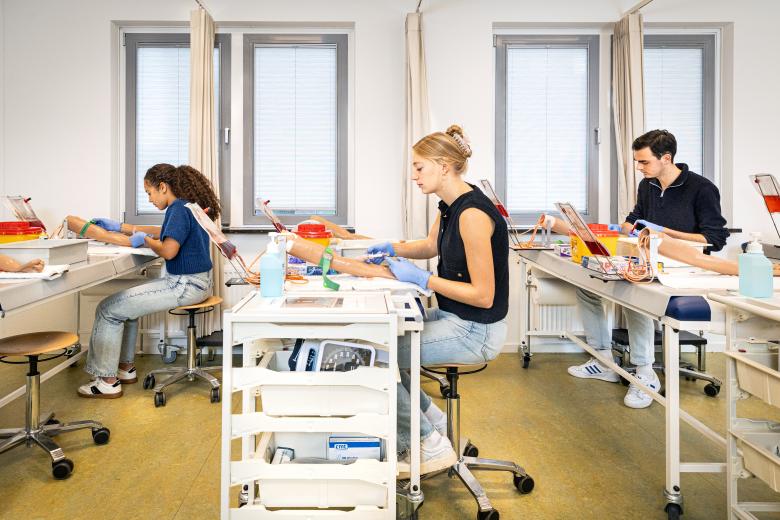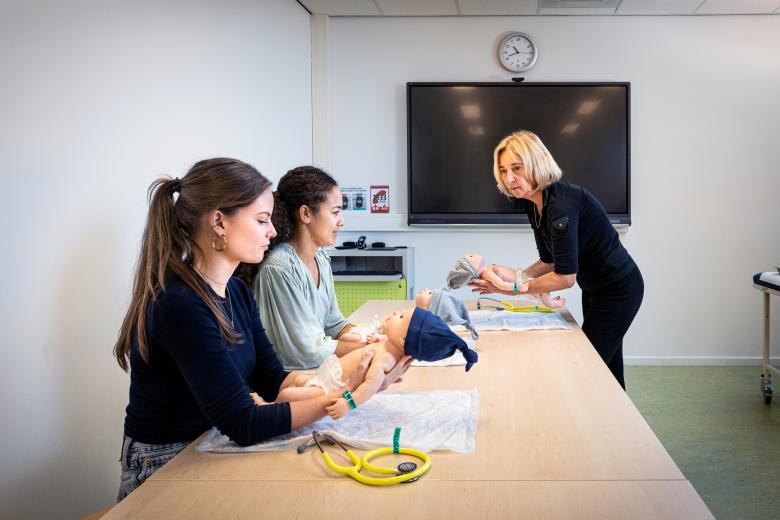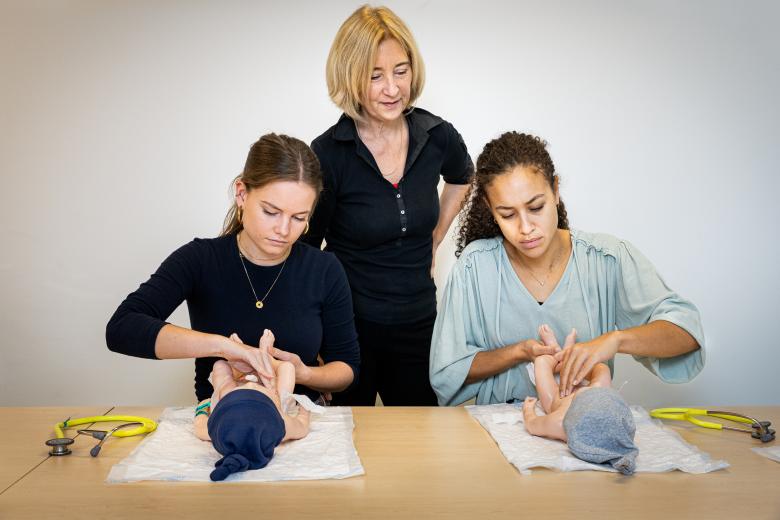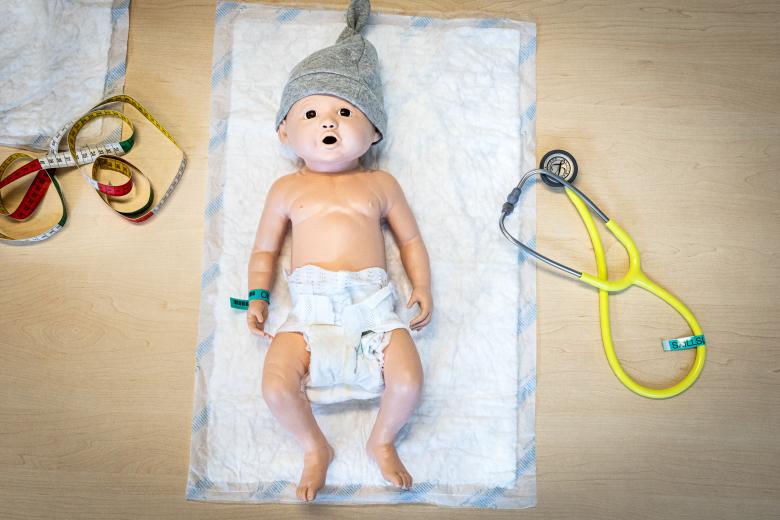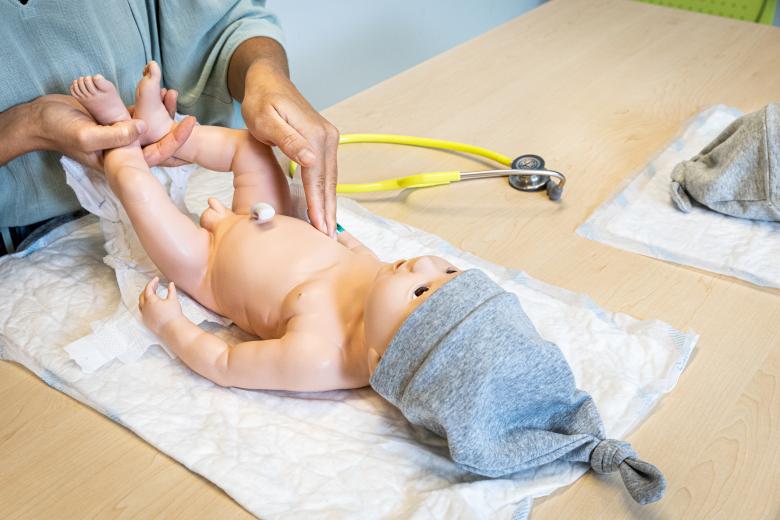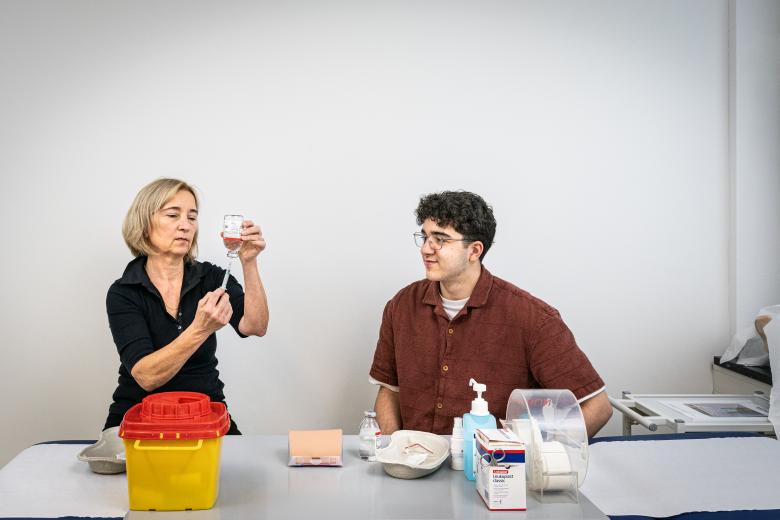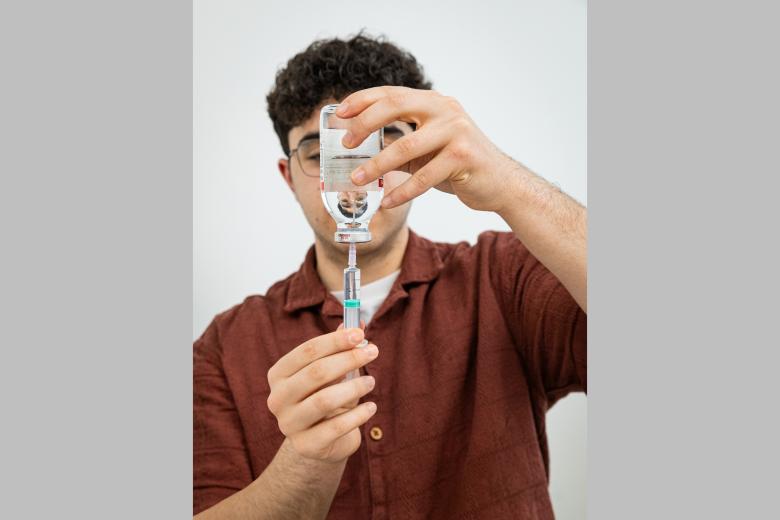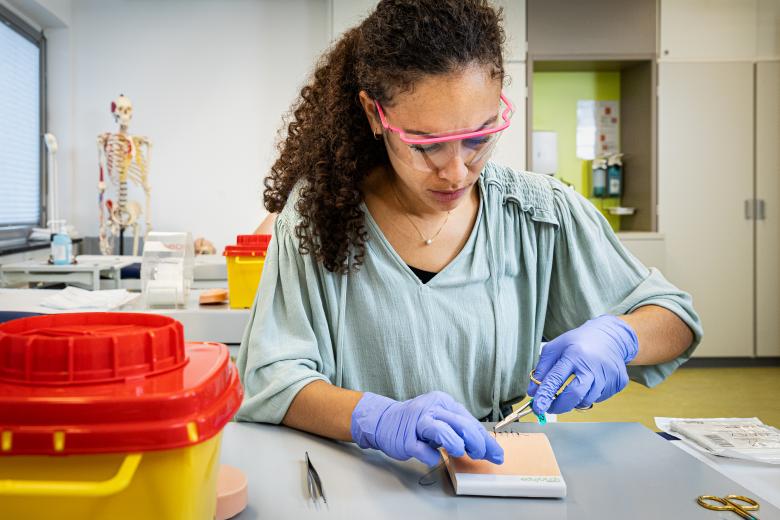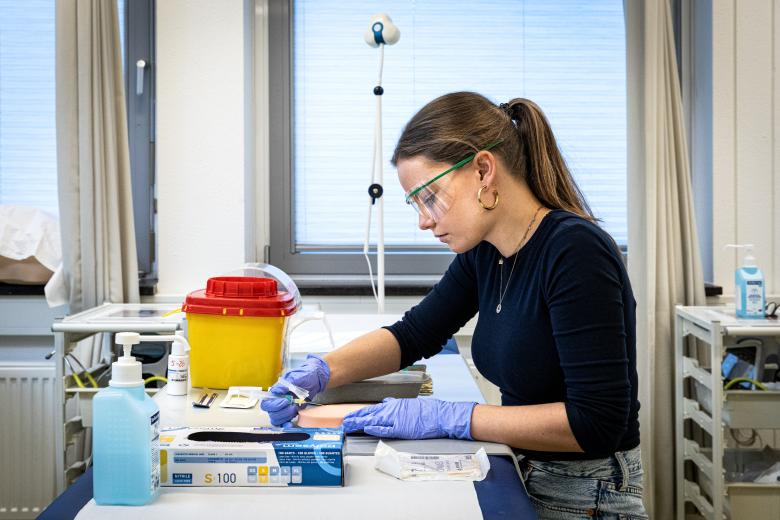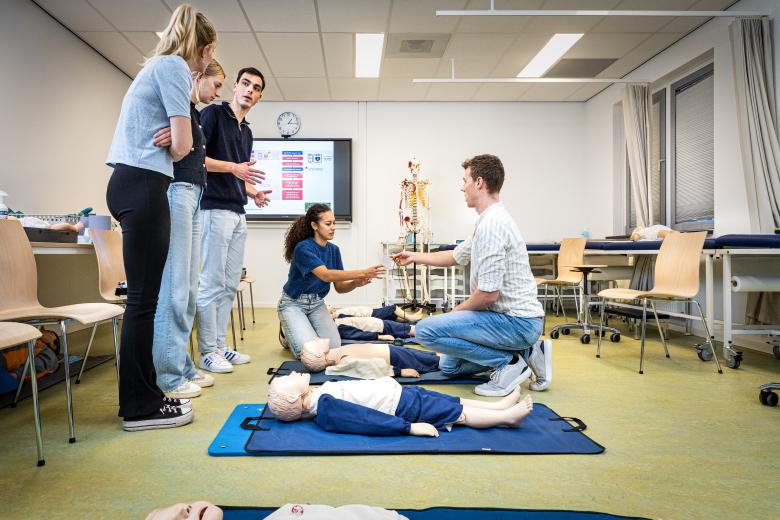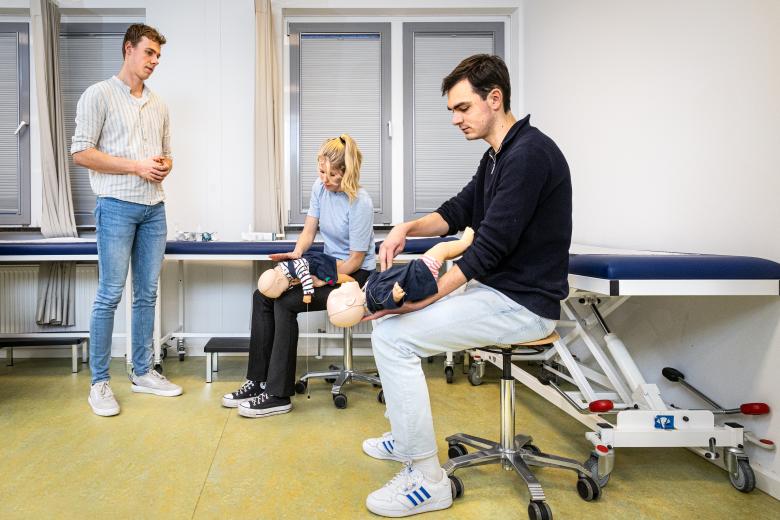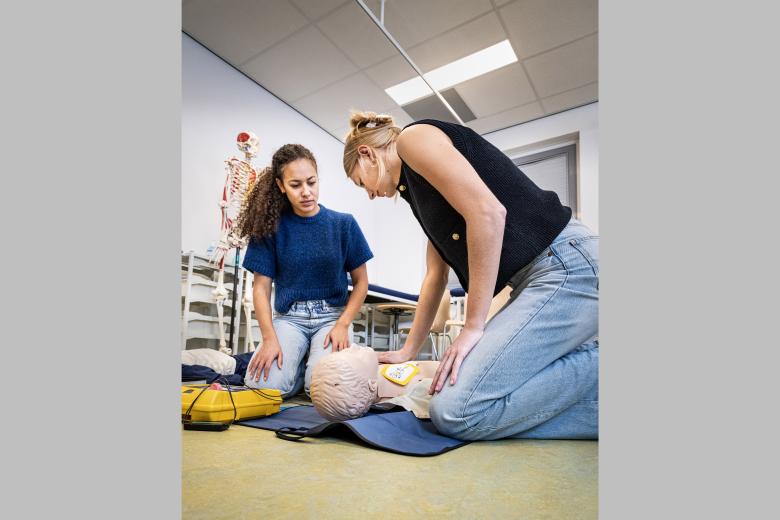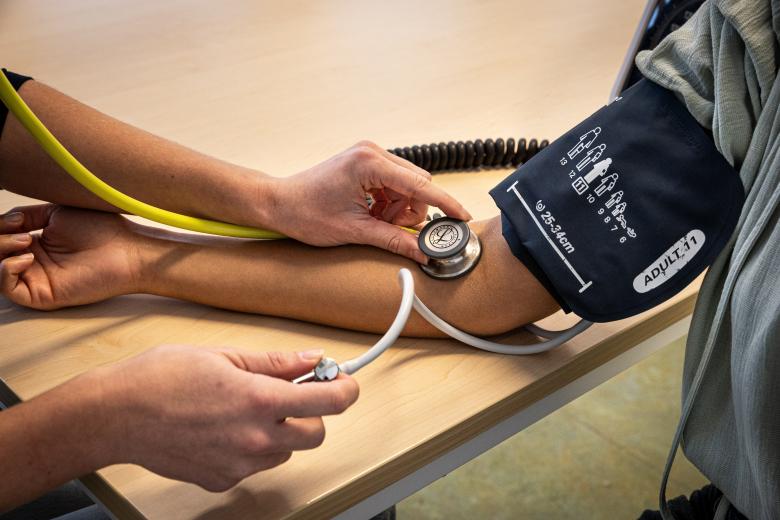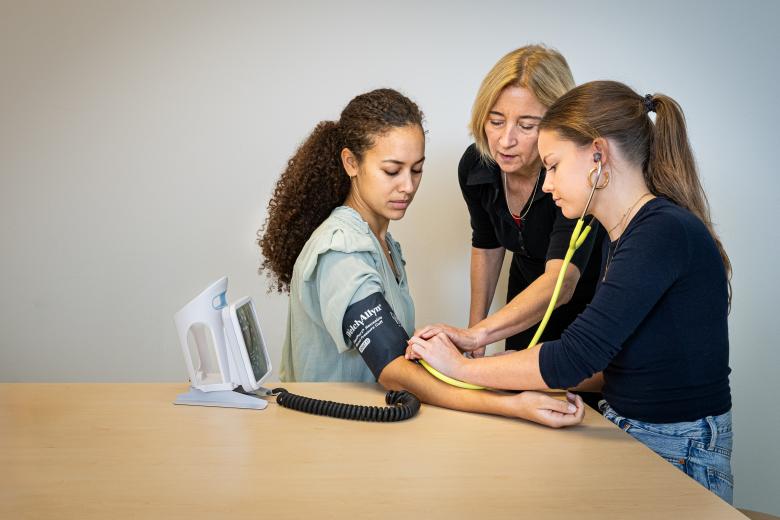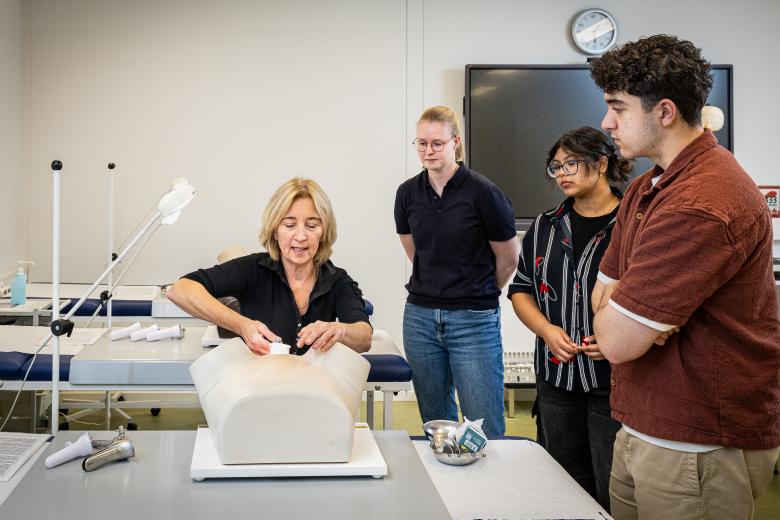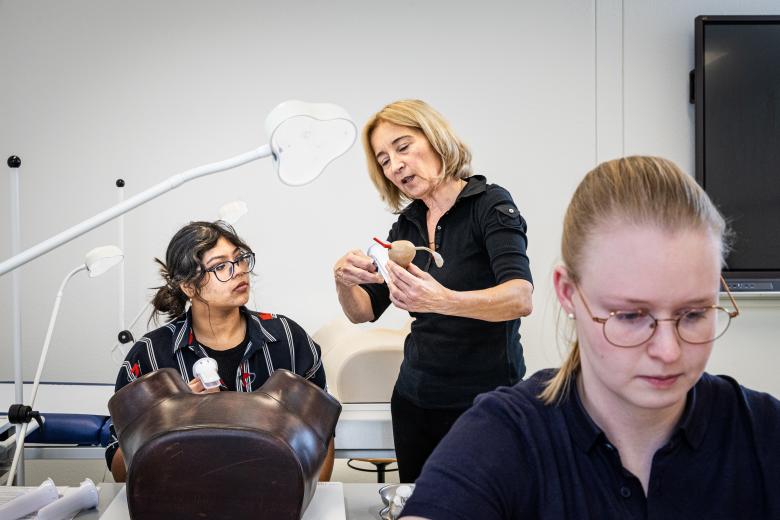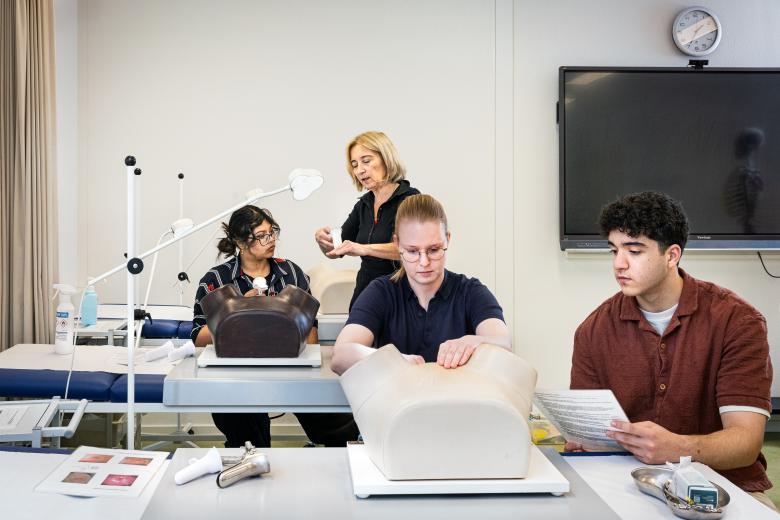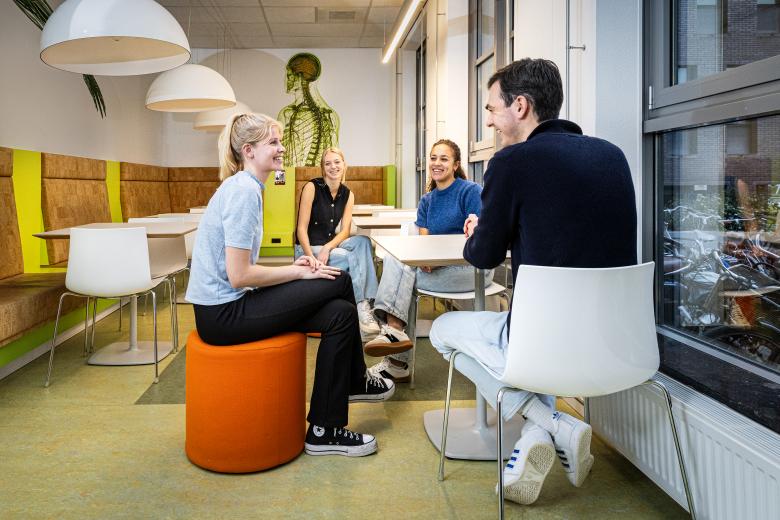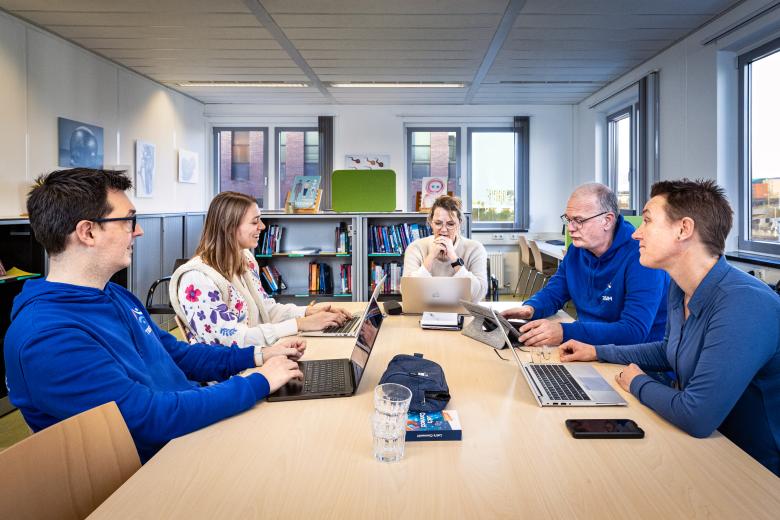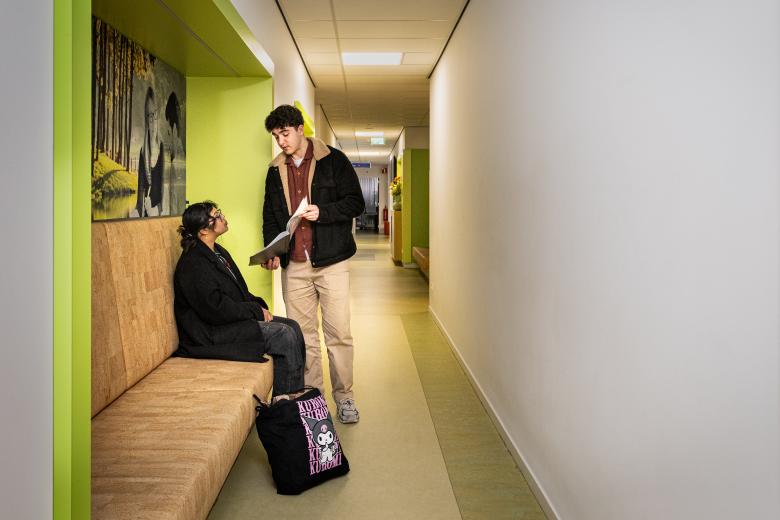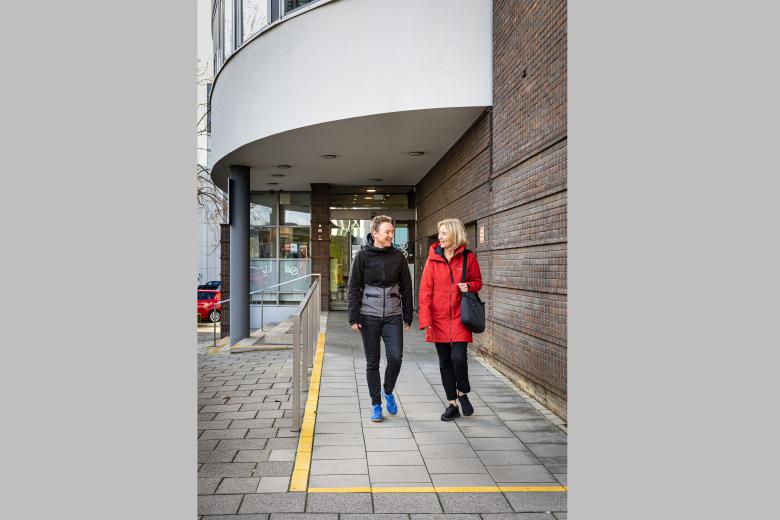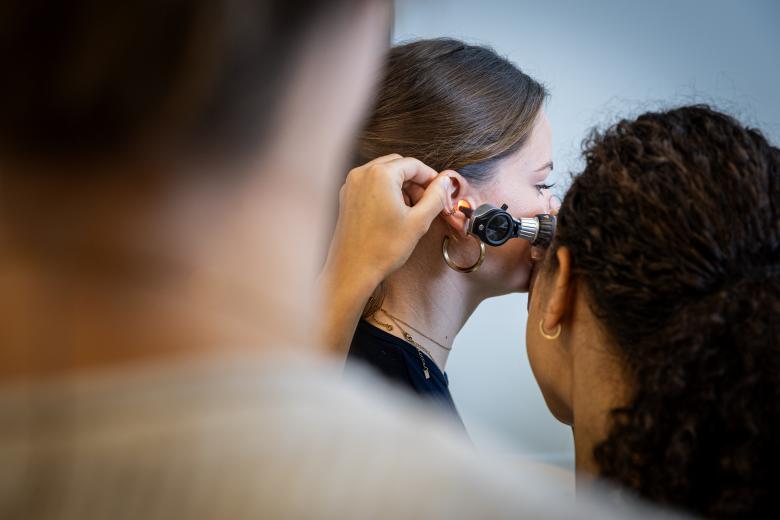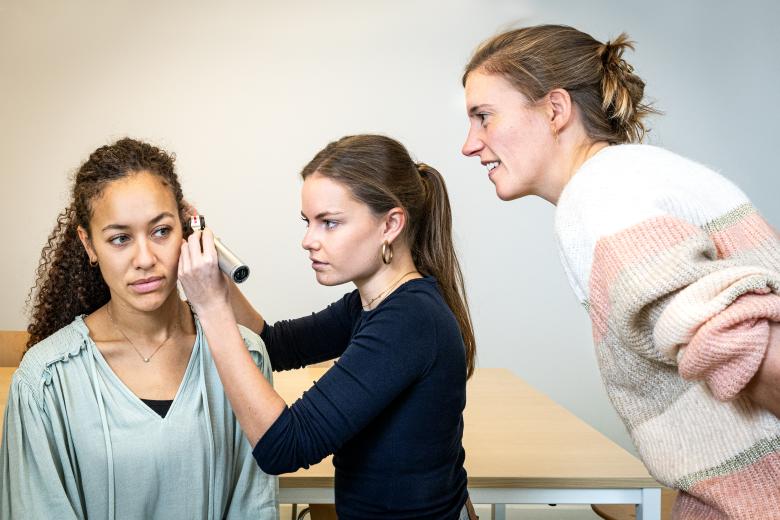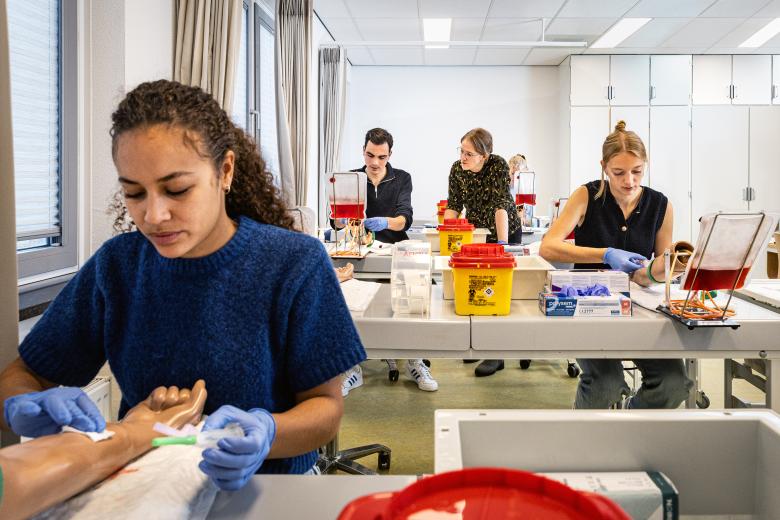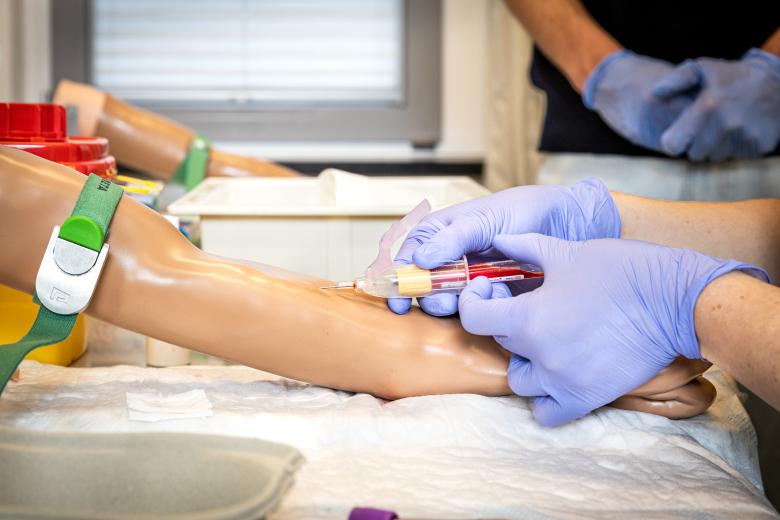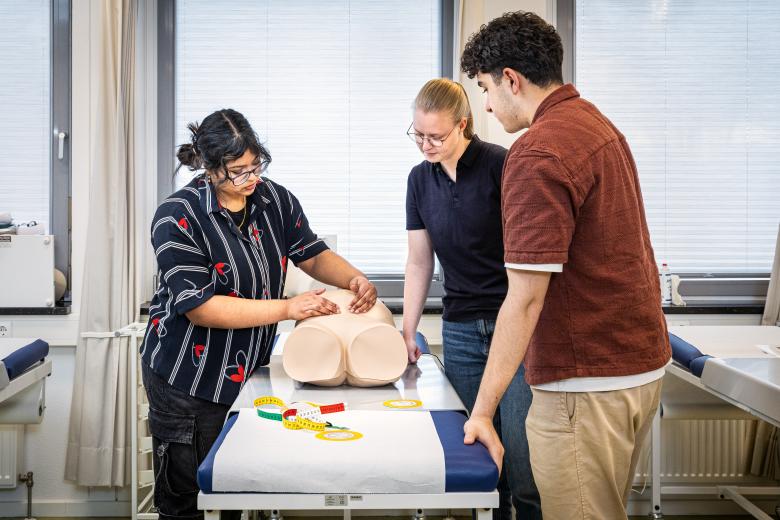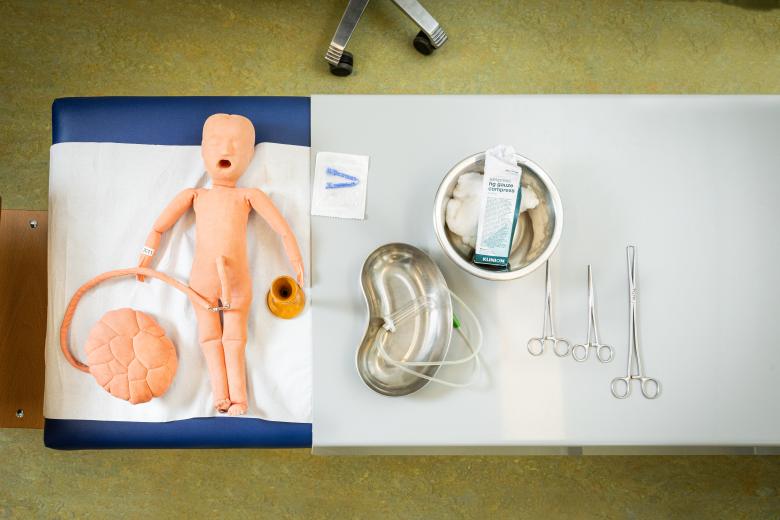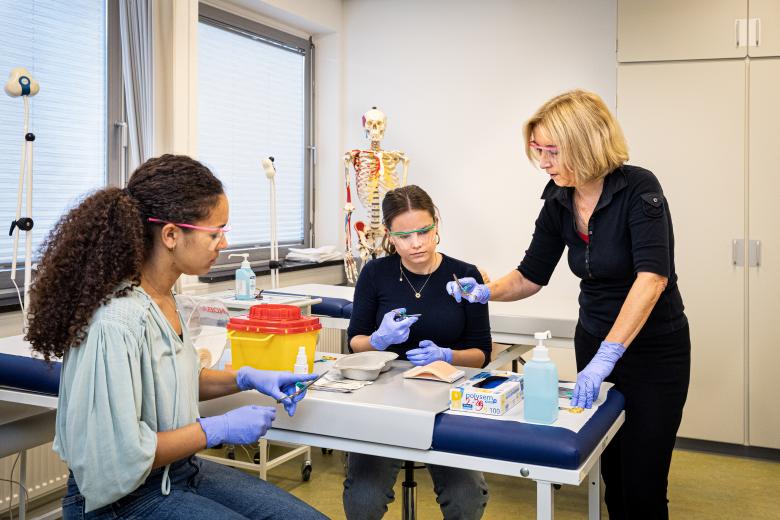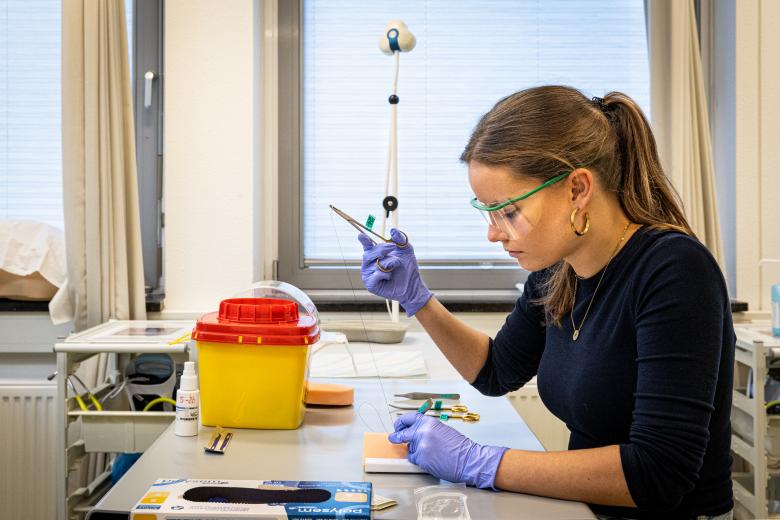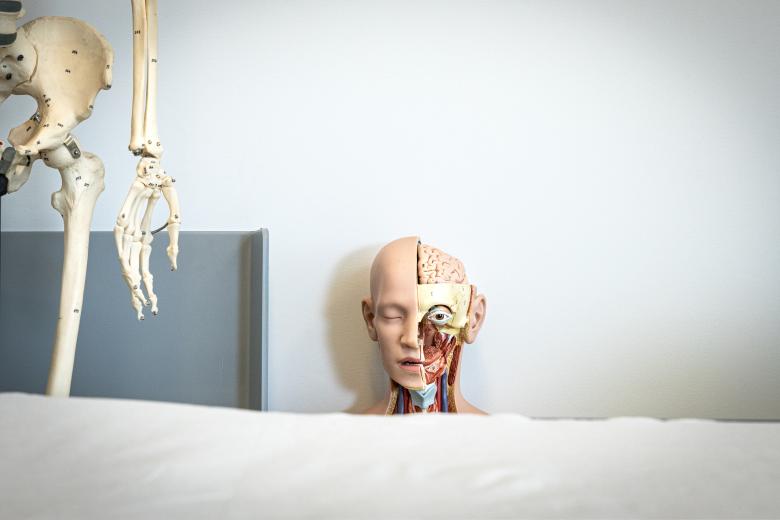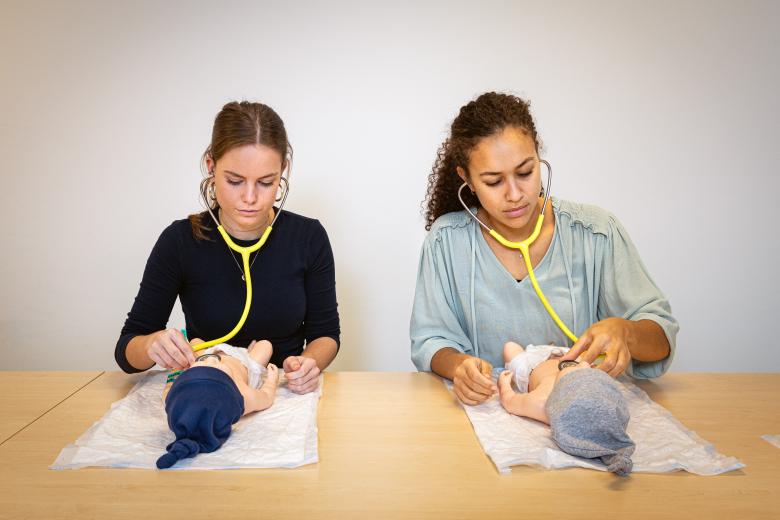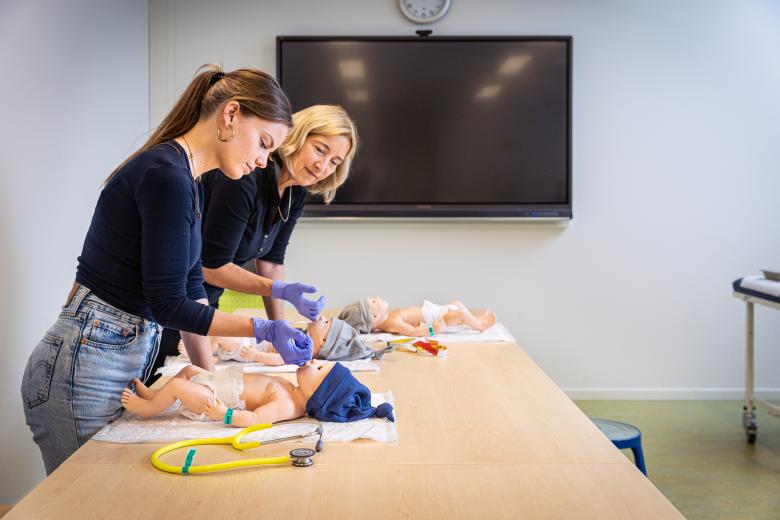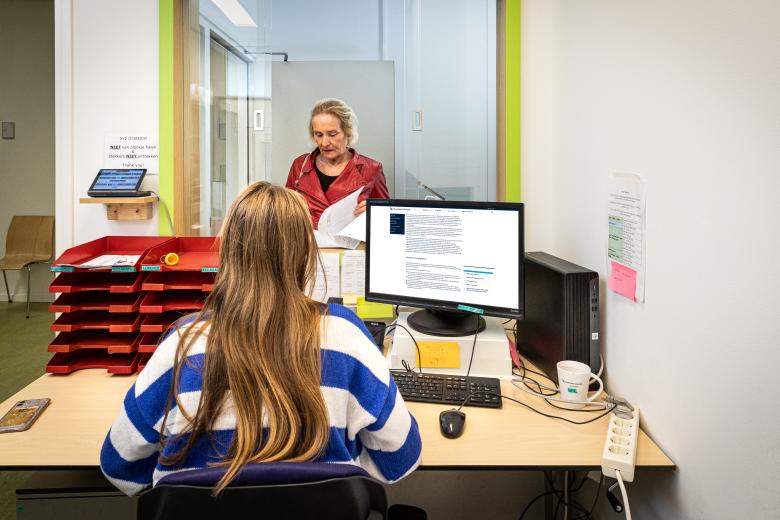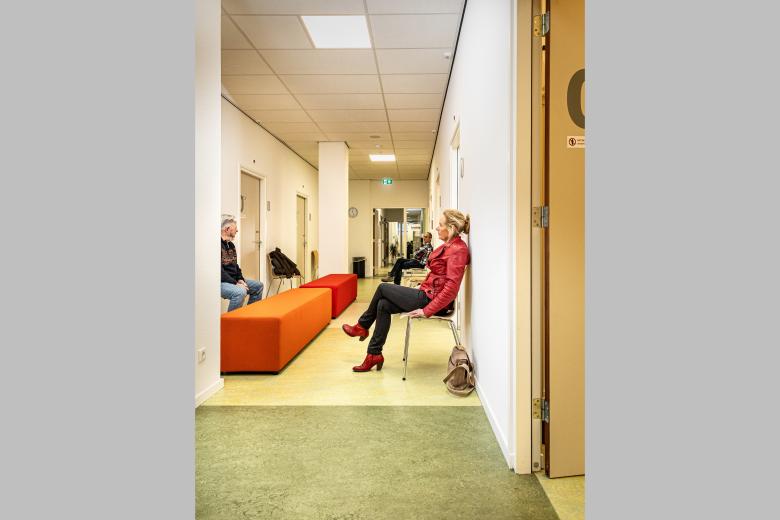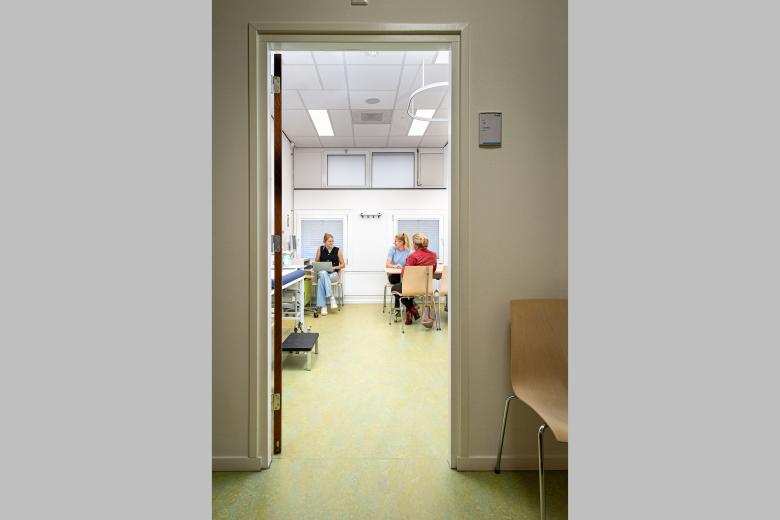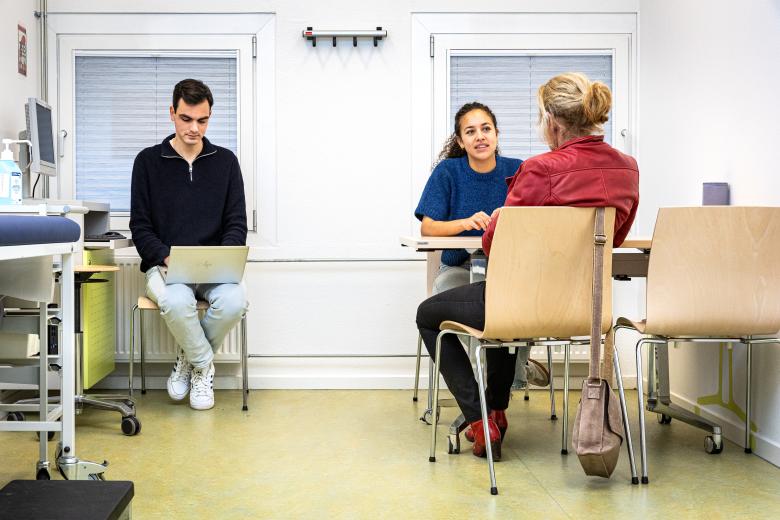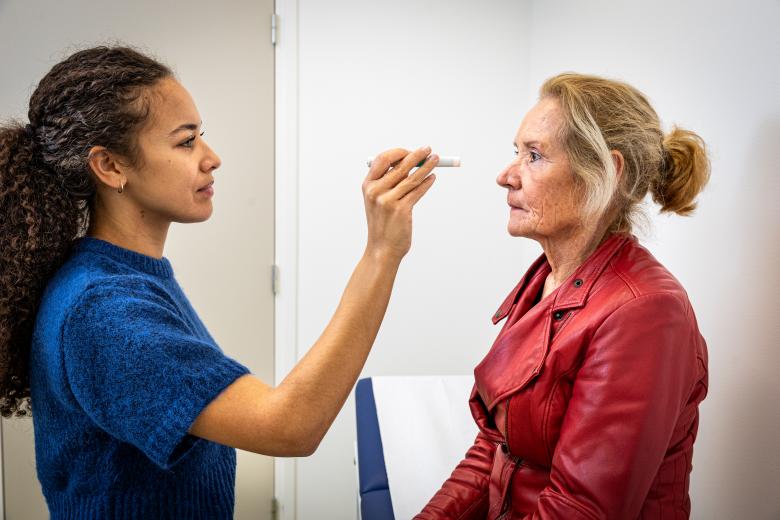NWO grants 3 million euros to researchers, among them at Maastricht University, to ensure timely availability of
NUTRIM Reflections 2024-2025
- Researchers
- Students
Read the NUTRIM Special Holiday Edition Newsletter with the highlights of 2024
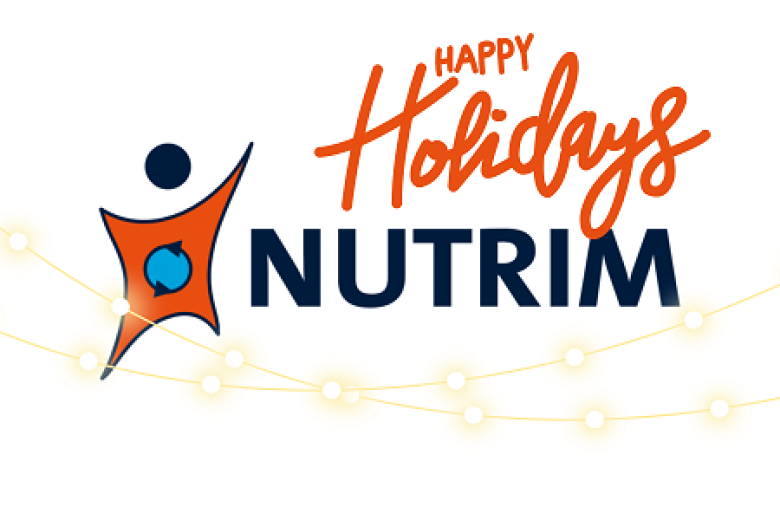
Coll-a-Gen: Animal-Free Synthetic Collagen
Maastricht University has secured over €400,000 in funding for the development of Coll-a-Gen, a synthetic, animal-free
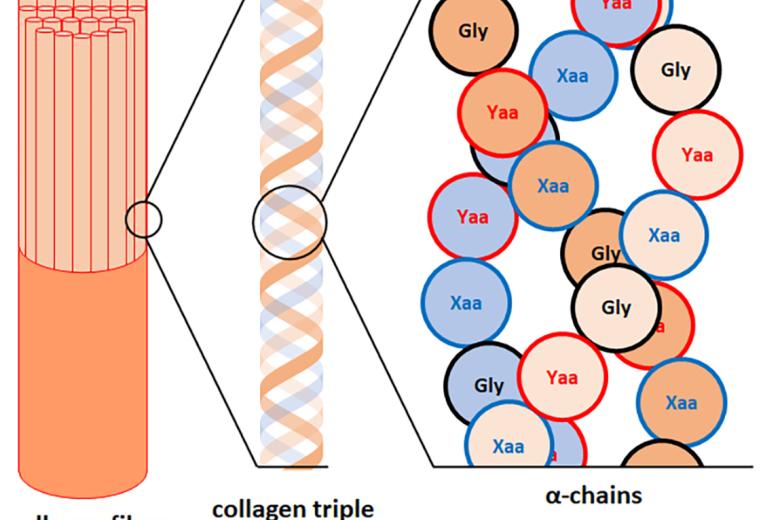
(Text continues below the photo)
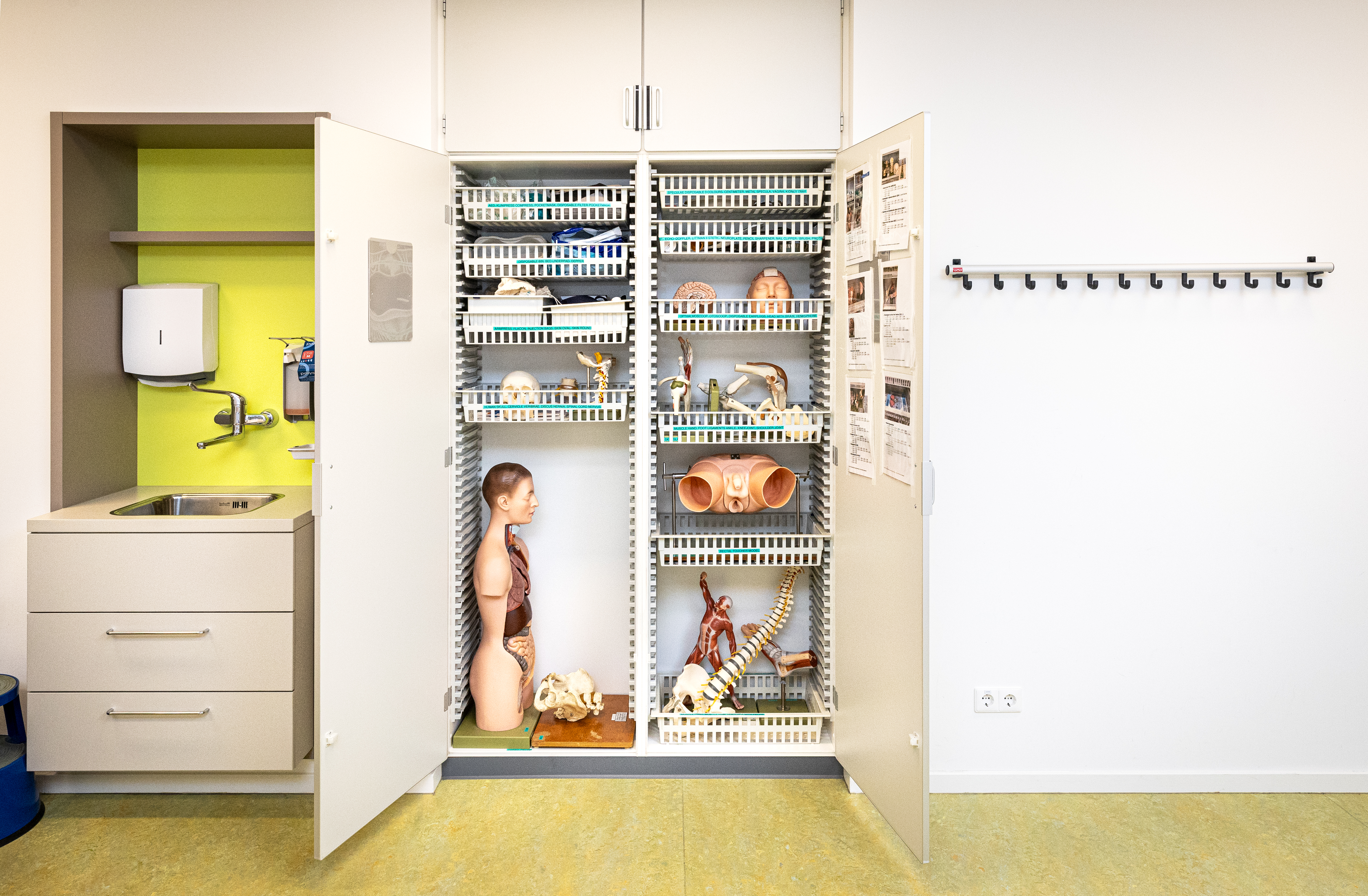
-
The Skillslab's educational approach goes beyond developing practical skills. It places strong emphasis on self-regulated and co-regulated learning, reflective practices, intrinsic motivation, and cultivating a mindset geared towards lifelong learning. Students not only practice technical procedures but also focus on conducting consultations, effective communication, teamwork, and their personal and professional development. Diversity and inclusivity are key principles, encouraging students to be curious about the person behind the patient.
Click on the icon to watch all photos
(Text continues below the photo)
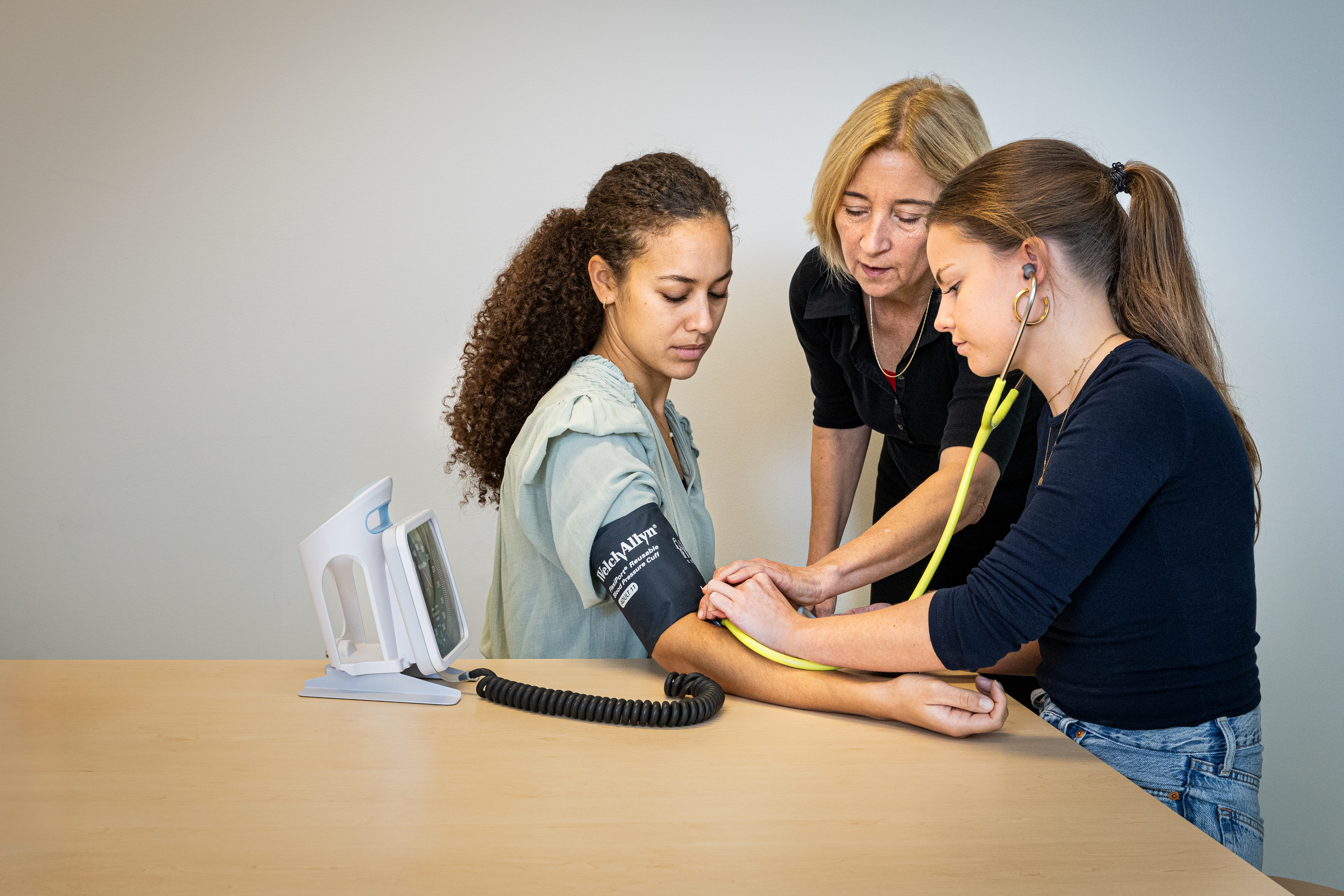
-
The Skillslab values a safe working environment where both teachers and students can grow and contribute using their unique talents. The learning environment in the Skillslab is small-scale, enabling personalised guidance from skillscoaches and instructors. The focus is on giving students the opportunity to learn and practice based on their individual goals, as part of the integrated curriculum of the Medicine programme and skills training.
Click on the icon to watch all photos
(Text continues below the photo)

-
Expectations for students are clear, with defined learning outcomes that are made readily available. The Skillslab has implemented programmatic assessment, where students learn from their assessment programme. The organisation of the educational approach and the assessment programme is intensive and demanding.
Click on the icon to watch all photos
(Text continues below the photo)
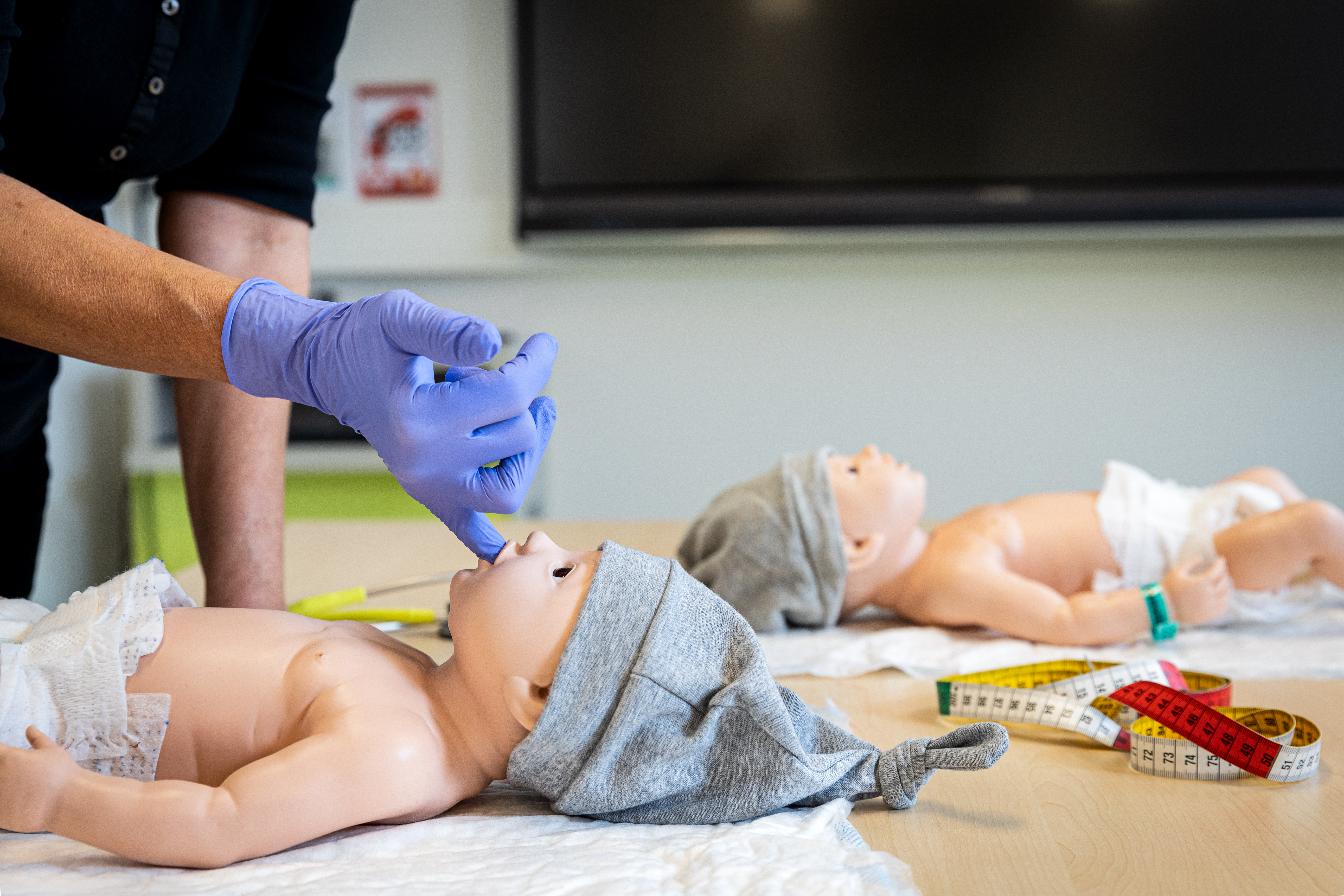
-
Practicing on peers is an essential component of skills training, with a shared responsibility to shape it properly. Specific models are used for procedures like injecting, and trained individuals assist with breast exams, gynecological exams, and male genital exams. This allows students to practice under the guidance of a skills instructor (doctor). Patients are also involved in the educational process, helping students better understand the impact of illness on a patient’s life.
Click on the icon to watch all photos
(Text continues below the photo)
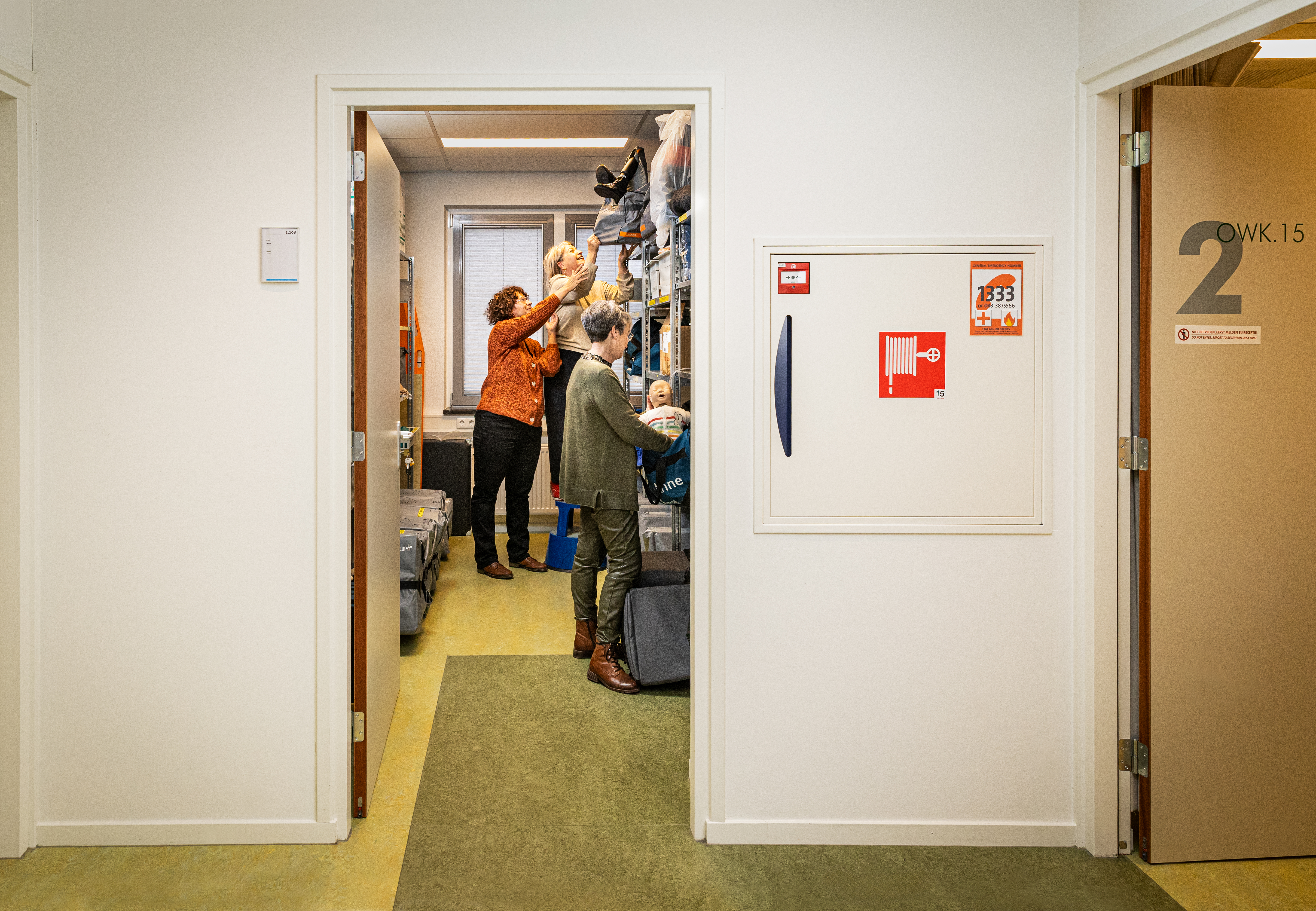
-
To make the educational programme as realistic as possible, the Skillslab works with trained simulation patients who convincingly portray the role of a patient. This makes consultations more practice-oriented. In doing so, the Skillslab supports the transfer to the workplace as a co-assistant and lays a strong foundation for developing the medical and interpersonal skills indispensable in healthcare.
Click on the icon to watch all photos
All photos: Paul van der Veer
Text: Sanne Handels
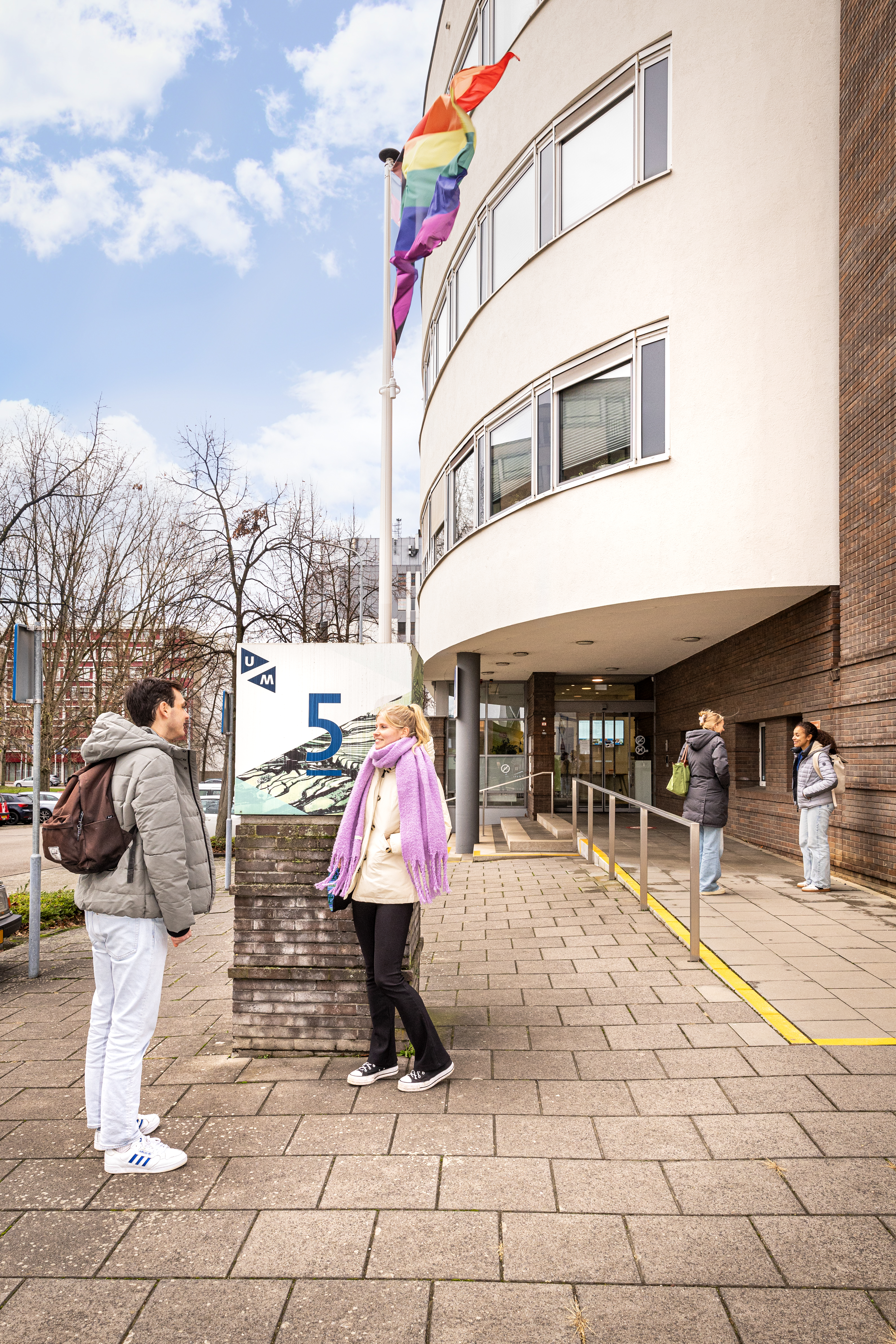
The first TGX conference day
On Tuesday, December 3rd, 2024, our Department of Translational Genomics hosted its very first TGX Conference Day!
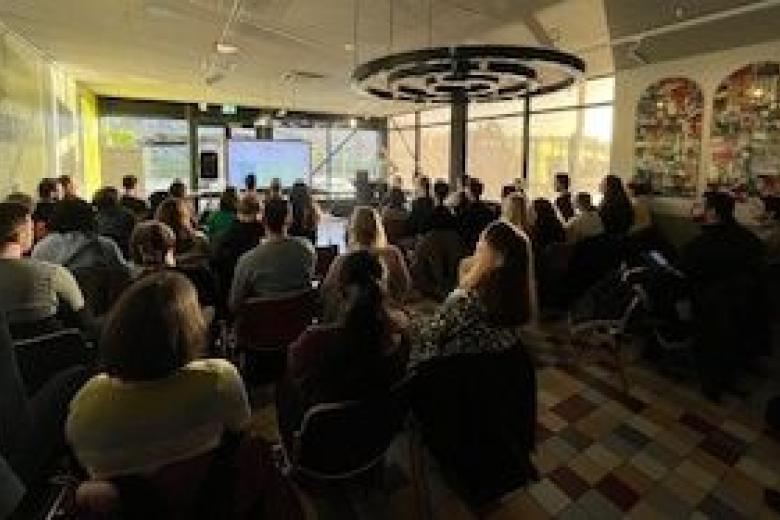
What made your study programme unique?
Noel told us what made the BA Arts and Culture programme stand out for him: "Before starting the BA, I had spent a gap year in South America, where I immersed myself in the local culture. I like to refer to the Arts and Culture programme as a ‘journey of the mind.’ We travelled through time, from the history of philosophy, science, and technology, to art history, contemporary art-science collaborations, environmental challenges, and gender studies. It was an incredible journey of discovery. The best part was discussing these fascinating topics with my classmates, whether in the classroom using the Problem-Based Learning (PBL) style, in the library, or over dinner. I formed lifelong friendships with many of them, and six years after starting my studies, these people are still my closest friends."
When we asked about his experience in the MSc CAST, Noel reflected:
"After completing my BA, I took a gap year where I gained professional experience in an art-science museum in Germany. After this, I wanted to deepen my knowledge of science, technology, the arts, and environmental challenges, so I decided to pursue the MSc in CAST. I loved this programme because we were immersed in a professional research environment at FASoS. We were part of research communities like MUSTS and AMC, which allowed us to connect with interdisciplinary researchers. In the second year of the CAST programme, we were sent on research internships. Some of my classmates worked in artist laboratories, at curatorial departments in museums, or on ongoing research projects at universities. I went to Botswana, where I contributed to an ethnographic research project on indigenous knowledge systems. This experience was incredibly enriching and made the CAST programme truly unique. It gave me authentic insight into professional research environments."
What was your favourite course?
When we asked Noel about his favourite course in the BA Arts and Culture programme, he said:
"It’s hard to pick just one favourite, but I really enjoyed Technological Society. In this course, we were introduced to theories from Science and Technology Studies (STS). We learned how society shapes scientific and technological developments, and how technology and science in turn shape society. Before taking this course, I thought technological progress was inevitable and that we had no power over it. But this course opened my eyes to the ways in which we can influence the technologies we want and oppose those that are harmful to our cultural and natural environment."
Noel also shared his thoughts on his favourite course in the MSc CAST:
"My favourite course in the CAST programme was the Joint Research Project. After taking courses on qualitative research methods, STS theories, writing grant research proposals, and museum studies, the Joint Research Project brought all these elements together in a creative collaboration with my fellow CAST students. We developed innovative research methodologies that were based on practices such as painting, knitting, baking, walking, dancing, and photography. We not only studied these practices but also performed them to gain new academic insights. This course bridged artistic and academic approaches and introduced us to artistic- and practice-based research."
What was your biggest challenge during your academic career?
Noel admitted that his biggest challenge was writing his thesis:
"I felt very challenged—at times overwhelmed—when writing my thesis. There were moments when I thought, 'This is not good enough,’ or 'Does anyone really want to read this?’ But I soon realised that these feelings were not true self-doubt, but rather necessary checks on the quality and relevance of my research. With the help and feedback from my supervisors, tutors, and peers, I was able to improve my writing, refine my analysis, and solidify my theoretical framework. In the end, I was proud of what I had written and was glad to have made it through such a challenging but rewarding process."
How do you look back on your time in Maastricht / FASoS?
Noel fondly looks back on his time in Maastricht:
"My time in Maastricht was fantastic. I had many defining moments there in my early 20s—living on my own for the first time, studying in English, and making friends from all over the world. I lived in Maastricht on and off for six years. Although I spent some time away for internships in museums in Germany and for my research internship in Botswana, the gravitational pull of Maastricht always brought me back. Now, I consider Maastricht my second hometown. I will always hold FASoS and the Banditos Café in my heart."
Could you tell me a bit more about your student life in Maastricht?
Noel shared:
"I love the open, creative, and motivated vibe in Maastricht, especially in the cultural scene. There are plenty of places like Lumière Cinema, Landbouwbelang, and the Bonnefantenmuseum where you can always find something happening and get inspired. Aside from my studies, I was also photographing and organising independent photography exhibitions. For physical exercise, I played basketball at UM Sports, which was really fun. In the evenings, I would meet up with friends for drinks at Café Zondag or Shamrock, play pool, or have a relaxed dinner with a movie night at home."
Could you tell us a bit more about your current job?
When we asked about his current career, Noel said:
"Currently, I am in the process of applying for jobs in the cultural sector and academia. I can see myself working in the curatorial department of a museum, but I’m also passionate about research and would love to pursue a PhD, particularly on topics relating to environmental change, ethnography, and colonial history. Thanks to the BA Arts and Culture and MSc CAST, I feel well-equipped and confident in finding a position in my field."
Do you still keep in touch with students/staff from FASoS?
Noel told us that he remains connected with many of his friends and colleagues:
"Yes, I still stay in touch with my classmates, friends, tutors, and staff from FASoS. My friends are spread across Europe, and we often organise video calls to catch up. They are based in places like France, Spain, Italy, England, Germany, Switzerland, Austria, and Slovakia, and I try to visit them during my summer holidays. When I visit, they show me around their cities and introduce me to their families, and we have a great time together. I also keep in contact with my tutors and the FASoS staff to let them know what I’m up to, ask for feedback on job applications, and sometimes even request letters of recommendation."
December 2024
The SUM2030 End-of-Year Report shows how sustainability came to life at UM in 2024. With activities like thrift markets, Climate Fresk workshops, and a Sustainability Festival, it’s all about taking action and working together. This report celebrates the efforts of students, staff, and partners to create a greener, more connected campus. Explore the highlights, get inspired and join us in the new year!
